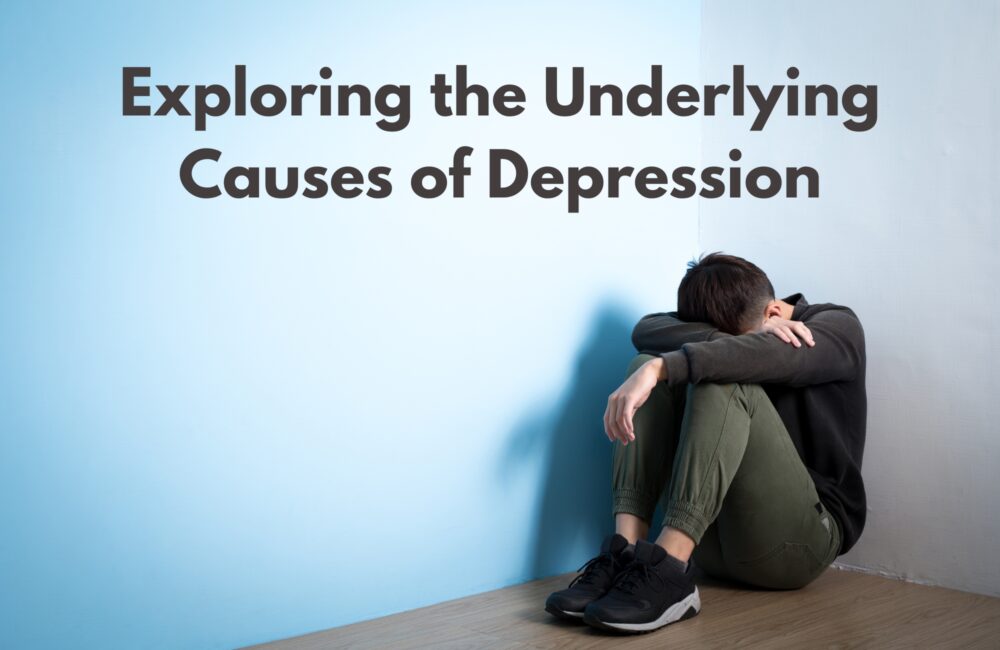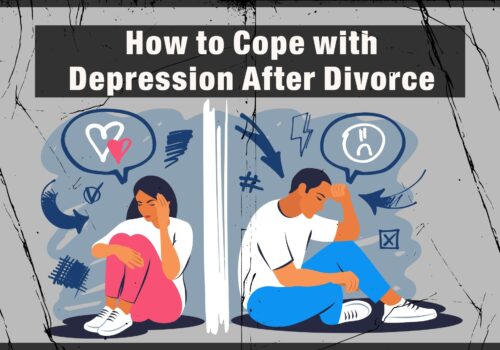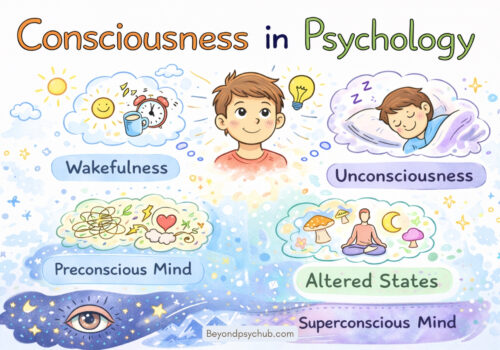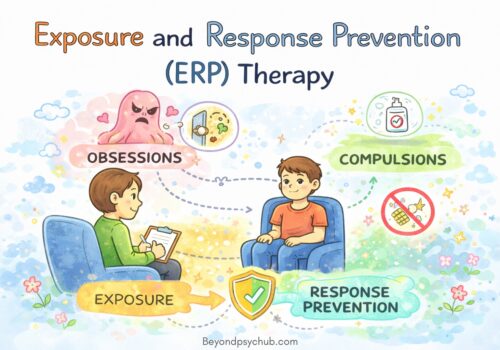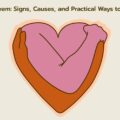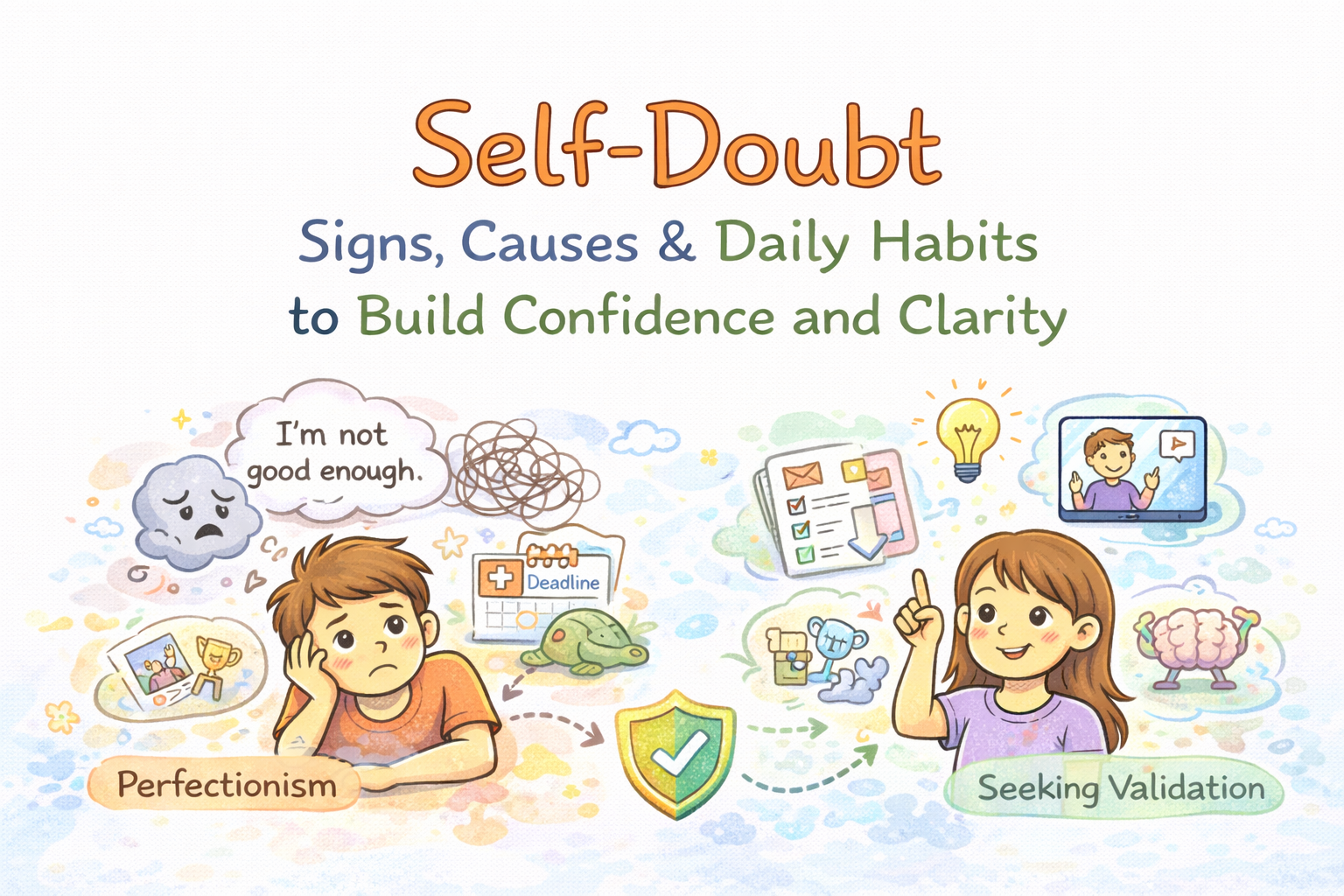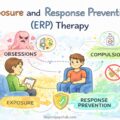Depression is a prevalent and challenging mental health disorder which is so common in this global population. Unfortunately depression isn’t easily defined as it manifests in varying degrees and it has effect on each of us in different ways—ranging from short-term sadness to a very serious mental health disorder that negatively impacts our ability to thrive in life. Recognizing the potential causes of depression is essential to its resolution. This article dives into the exploration of depression, encompassing biological, psychological, and environmental dimensions.
Biological Factors
Biological factors also have a hand in depression’s etiology. This refers to substances like brain chemistry, genetics, and hormonal imbalances that are responsible in large part for how one feels and reacts to depression causes.
- Genetics
It was found that genetics might have significant part in impacting one’s vulnerability to depression. So, if you have relatives that have a history of depression then it is quite possible that you may also suffer from it. Yet it is also certain that no single gene will simply make you depressed and a combination of multiple genetic modifications may result in a vulnerability to depression. First-degree relatives of depressed patients have been found to have a higher rate of this disorder, if a “depression gene” exists then it is likely to be found through continued research leading to a biological understanding of the root of this disease and thus potential individualized treatment based on genetic profile.
- Brain Chemistry
The neurotransmitters in the brain (serotonin, dopamine, and norepinephrine) are the chemicals which regulate mood and other types of emotional responses. A disruption in the balance of these chemicals will result in depressive symptoms.
For example, serotonin is usually related to sad and hopeless thoughts, characterizing depression. Some of them can lead to neuronal processing through the overlap between different types of neurons. It has been thought that a change in the brain chemistry of these neurotransmitters can affect the activity at different parts like the prefrontal cortex and amygdala which are related to decision making, emotional regulation, and stress response as demonstrated by some research in depressed patients. It is important to identify these molecule and system level interactions when considering pharmacological interventions to adjust a specific neuro neurotransmitter system to alleviate depression symptoms.
- Hormonal Changes
Hormonal changes, which can cause or worsen depression, are often observed in people undergoing hormonal transitions like pregnant or menstruating women and those in menopause. In fact, the fluctuation in hormones that causes mood change during these periods might make you feel like your brain is about to explode, leaving you vulnerable and in danger of an oncoming depressive episode.
Moreover, conditions like thyroid disease, which affect the balance of hormones in your body can bring about symptoms of depression. For instance, people often associate hypothyroidism with a triad of weight gain, fatigued and mood swings that closely mimic or can amplify states of depression. The jigsaw between your brain altering hormones and mental state clarifies the necessity of adopting a holistic treatment approach wherein not just the mental symptoms are addressed but also the physical in order to help those struck with depression
Psychological Factors
Personality, beliefs and thinking compose the psychological factors. Can someone’s psychological factors seriously contribute to the development and course of depression?
- Negative Thinking Patterns
Are related to negative thought patterns in depression-vulnerable patients. Negative thought patterns like All or Nothing thinking, and Catastrophizing reinforces worthlessness and hopelessness. A pattern of negativity forms around these thought patterns and with it a pattern of worthlessness and hopelessness. These thought patterns are quite fixed, Therefore in therapy these patterns need to be challenged.
- Personality Traits
Which Personality Traits Predispose Someone to Depresion? Specifically, neurotic personalities are significantly extra vulnerable to stress and negative emotions. The writers also show that a side effect of low self-esteem is our ability to process life’s adversities and formulate feelings of inequacy and hopelessness.
Environmental Factors
One’s living environment can play a vital part in determining his or her mental health. Many things may cause depression based on external factors such as Events in our lives, Social Support & Socio-economic factors.
- Life Events
For example, one or more traumatic events including the loss of a loved one, divorce, or job can lead to depression. Emotional responses to these events can be significant enough to cause overwhelming feelings of sadness and disconnection from reality i.e. Depressed Mood. Additionally, stress that continues for a long time may really wear on our bodies and increase our possibility of becoming depressed.
- Social Support
A strong social support can act as an insurance against depression. Without such support or being isolated, feelings of loneliness and hopelessness could be enhanced. The more individuals have available coping resources, due to a large social network, the lower the risk for depression, because they can deal with life events better.
- Socioeconomic Status
Mental health is likewise largely determined by one’s socioeconomic standing. Those with financial troubles, unemployment, or those who are in poverty may suffer from higher rates of stress and anxiety that could tip them into depression. Psychosocial resources and help may be limited in lower socioeconomic groups, further compounding the issue.
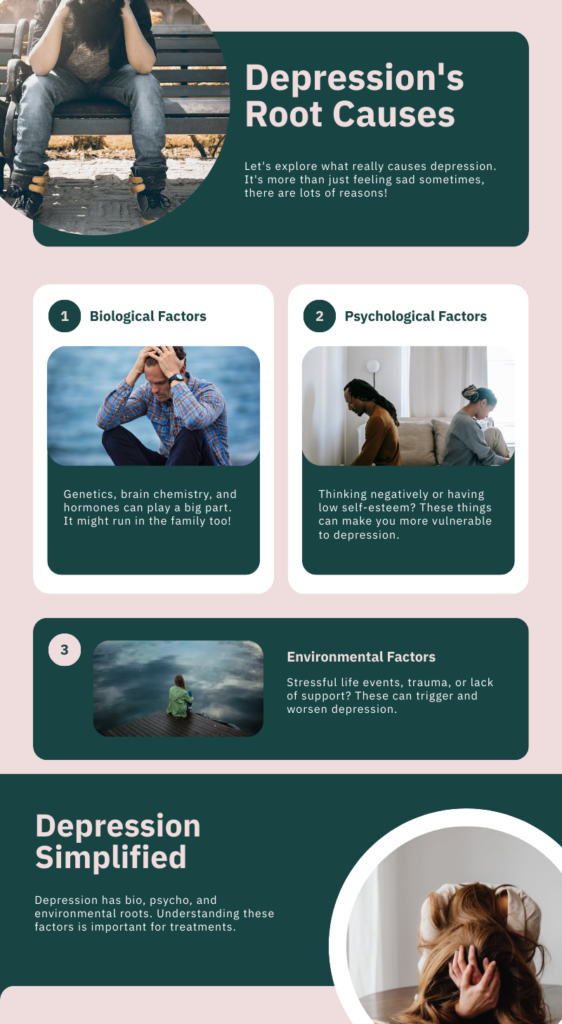
Interventions for Depression and Management
Understanding what leads to depression is important in its treatment and management. A multiple interventionist strategy leaning on biological, psychological, environmental adaptations may lead to a better outcome.
Therapeutic Approaches
Other therapies, such as cognitive-behavioural therapy (CBT) and interpersonal therapy (IPT), can help individuals break free from negative thinking and improve coping skills. Therapists can offer people with depression a place to talk about their feelings in a safe environment and the skills to manage them.
Medication
Some may need medications to help in coping with their depression. Antidepressants help to adjust the balance of certain neurotransmitters in the brain, so for most people, symptoms become more manageable. Patients should be closely consulted by their health care professionals for choosing the right drug and dosage.
Lifestyle Changes
Healthy lifestyle changes also helps in combatting depression. Physical activity, a healthy diet and getting enough sleep can help overall wellbeing and reduce symptoms of depression. Mindfulness methods such as yoga and meditation can also aid in creating resilience and stress-handling mechanisms.
Conclusion
Depression is a complex disorder that results from an interaction of genetic, psychosocial, and environmental factors. Knowledge of the several etiologic factors can help in drawing appropriate treatment plans. Such individuals just need to work on these factors and they can make their recovery and mental health better. Support From HCPs, Family, and Friends Assistance from HCPs, family, and friends is pivotal in helping to manage the challenges of depression and promote resilience.


